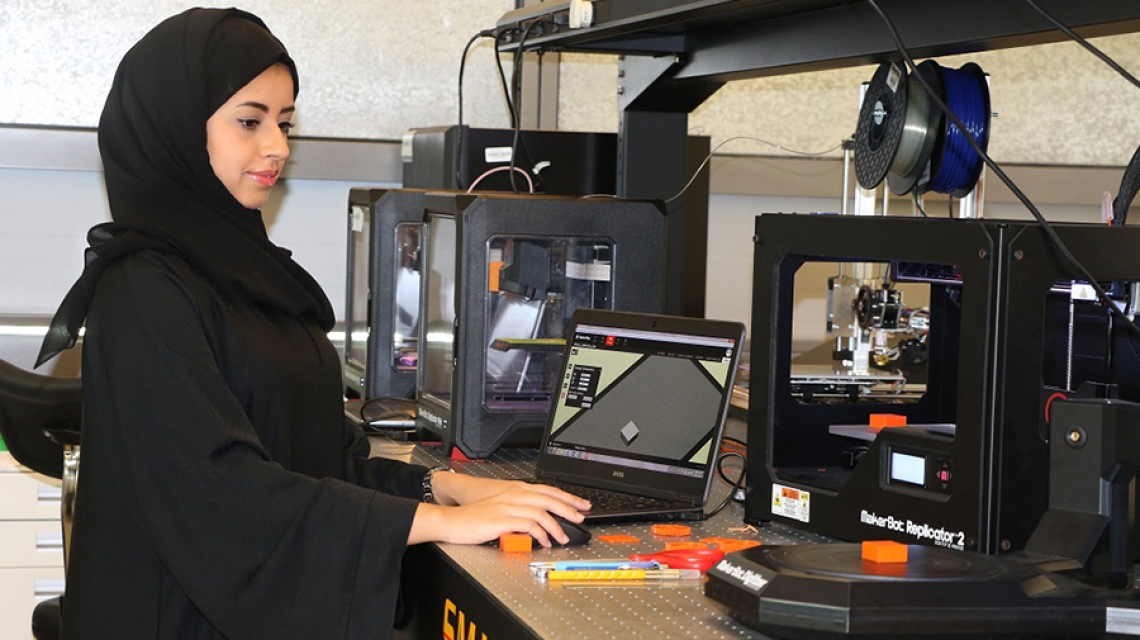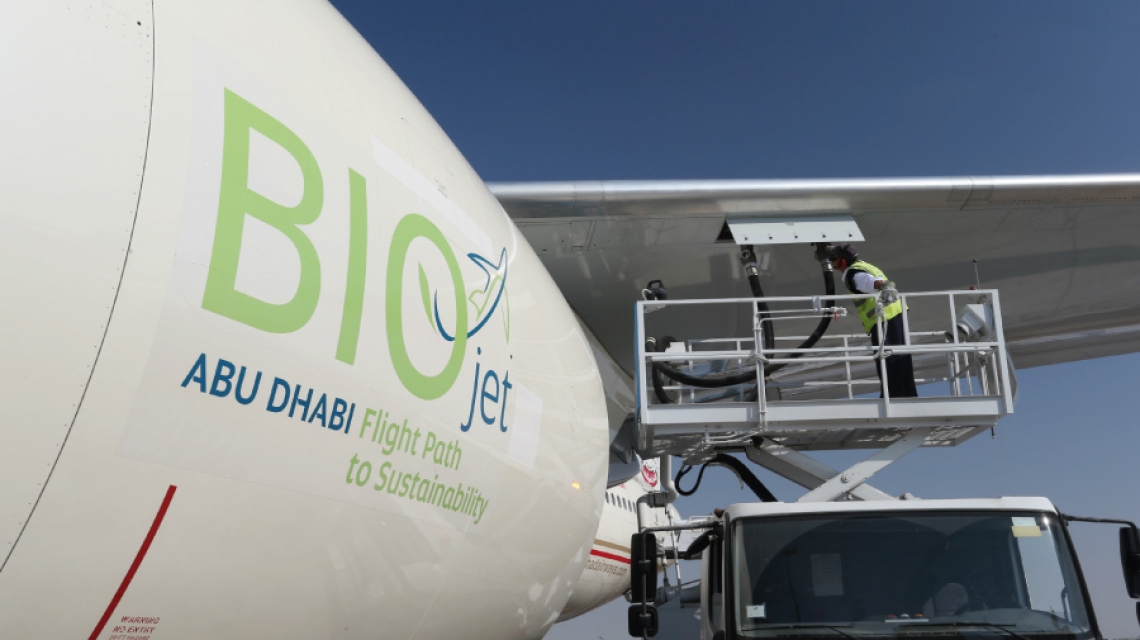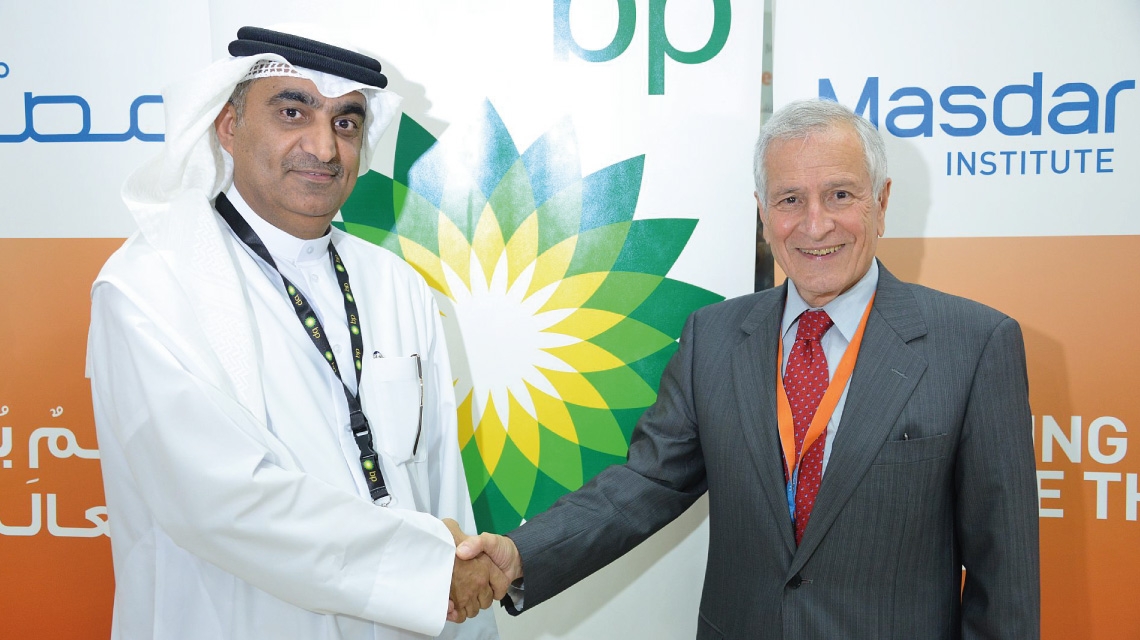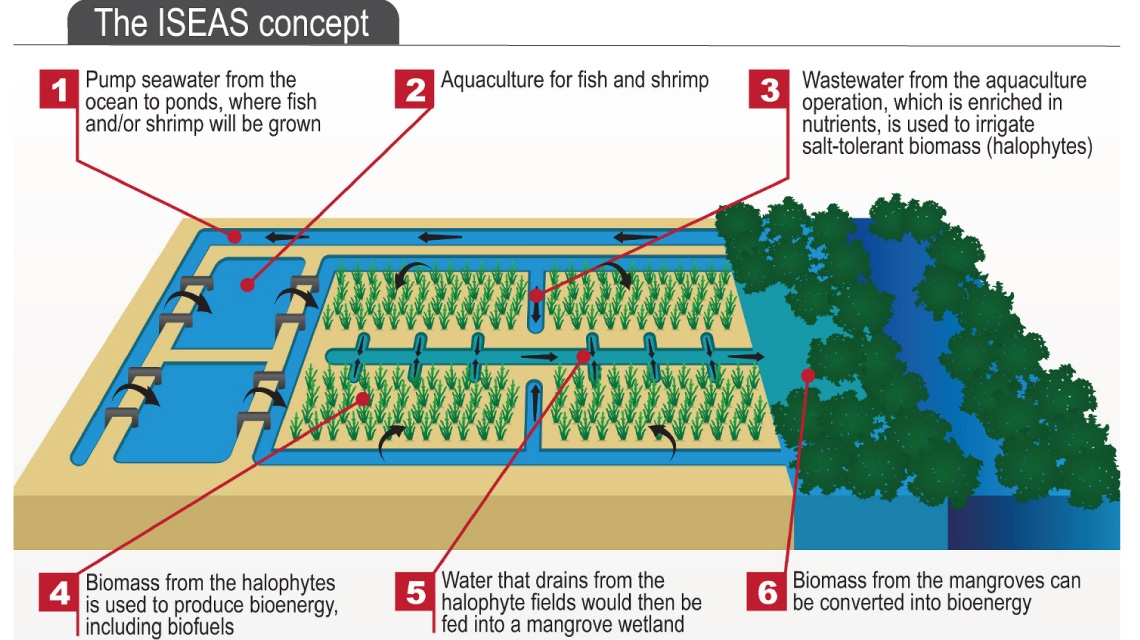
Masdar Institute of Science and Technology final year students preparing for their commencement on 24 May are already making waves locally and internationally with their research of relevance to the UAE’s economic and development interests, and are looking forward to furthering their contributions to industry post-graduation.
Over the course of their degree programs, Masdar Institute’s Class of 2016 students have attracted attention from the scientific and industrial communities through their novel research and its potential to bring innovation to key UAE industries.
Baddreya Alshehhi focused her MSc in Microsystems Engineering thesis research on advancing the Internet of Things (IoT) in support of the UAE’s semiconductor interests.
IoT describes a network of physical objects like devices, vehicles, buildings and other items embedded with electronics, software, sensors, and network connectivity to enable them to collect and exchange data. Although estimates vary, over 24 billion IoT devices are expected to be connected to the internet by 2020, with nearly USD6 trillion expected to be spent on IoT solutions over the next five years.
Alshehhi’s research looks to overcome one of IoT’s major challenges – the cost of powering and connecting smart devices, which must be powered by tiny sensors that need energy to receive and transmit data.
“There has been incredible growth in wireless technologies over the last few decades. Sensors, Radio-Frequency Identification (RFID) tags, mobile phones, and actuators all interact seamlessly to provide users the ability to smartly control their environment. That is why I focused my thesis on developing a tiny wireless transmitter that requires relatively little power is low cost and can be integrated directly onto a chip,” she explained.
“The semiconductor sector has opened a diversity of business ideas and demands for communication. To help support it, we need to develop of new ways to do more with less. That is how I would like to contribute to the UAE through my work, to help develop its competitive high-tech sectors that are integral to the UAE Vision 2030 plans for economic diversification,” Alshehhi added.
She plans to work in radio-frequency/analog circuitry design following her graduation to continue to support the UAE’s semiconductor ambitions, as she believes this field to be pervasive to modern life.
Fellow Class of 2016 student Zaid Almahmoud, who will be receiving a MSc in Computing and Information Science later this month, has also developed academically-recognized research of relevance to a key sector in the UAE – energy.
He recently received one of the 20 UAE Graduate Student Research Conference 2016 (GSRC) awards for a paper relating to smart grids, which he co-authored with Dr. Khaled Elbassioni, Associate Professor of Computing and Information Science
Explaining the scope of his work, Almahmoud said: “Our research proposes methods for optimizing power consumption in the smart grid, which would help achieve the UAE’s goal of developing smart techniques to support a sustainable energy system.” Smart grids leverage advanced systems and technologies, like digital communications, to accommodate a mix of renewable and conventional energy sources.
Smart grids are an essential part of the renewable energy-powered future envisioned by the UAE leadership, which has set a goal of clean energy accounting for 24% of the country’s energy mix by 2021. This technology also represents a new market for the UAE to explore as part of its diversified knowledge economy, as the global smart grid market is predicted to reach USD118.1 billion by 2019.
Almahmoud’s thesis research could eventually help the UAE’s electricity companies control the demand profile for electricity, which could help avoid the need for new power capacity.
“By optimizing the power load, the economical saving is quite substantial, since the current power consumption is highly inefficient. In addition, the reduction in the peak power demand would reduce the usage of the limited resources to generate power, thus reducing carbon emissions,” he explained.
Almahmoud plans to work in research engineering post-graduation to further develop his research, before ultimately pursuing his doctoral degree.
“My goal is to help UAE in using our proposed methods to optimize power consumption, as the energy savings would be quite substantial, and the methods we proposed are environmentally friendly,” he shared.
Upcoming MSc in Mechanical Engineering graduate Juliana Beltran Torres also co-authored a GSRC 2016 award-winning paper relating to renewable energy.
Her paper explored the optical performance of the Masdar Institute Solar Platform Beam-Down Concentrator, to validate the system used to track the reflected solar rays to ensure optimal energy capture. This research aims to help make solar energy capture at CSP facilities more efficient and effective. CSP can offer 24-hour renewable energy supply by coupling it with thermal energy storage technologies that store the solar energy during the day so it can be released on demand.
Torres says she would like to continue to work in CSP in the region to contribute to its cost competitiveness and overall uptake.
“I would like to expand the use and implementation of CSP to a large scale. It would be great to see the UAE invest in more plants like Shams 1, the world’s largest CSP plant, as they can become more efficient and provide more energy in a sustainable way,” she shared.
With around 679 MW of CSP capacity installed worldwide and more than 2000 MW under development, it is estimated that CSP could end up providing 25% of the world’s energy needs by 2050.
While many of Masdar Institute’s graduate students explored research topics of relevance to future knowledge economy sectors like renewable energy and semiconductors, MSc in Materials Science and Engineering Khalid Marbou’s focused his innovative thesis research on advancing and improving the UAE’s most established sector – oil and gas.
His research explored how inkjet printer technology can be leveraged as a low-cost way to produce sensors to detect scaling and obstructions in oil and gas pipelines. Scaling refers to a buildup of materials on the surface of something, which in the case of pipelines, result in inefficiency, downtime, and cost for treatment. Marbou’s project used inkjet printers to ‘print’ layers of carbon nanotubes (CNT) to form low-cost sensors that demonstrate good chemical, electrical and mechanical properties.
“Research using CNT as a sensing material to monitor scaling in the context of the oil and gas industry is a groundbreaking new research area with significant potential in the industry. Being one of the world’s largest producers of oil, the UAE stands to benefit a lot from any research that can enhance the efficiency and efficacy of oil and gas production and transport,” Marbou shared.
His research has attracted both local and international attention, as it has been presented in the US at the 2015 Materials Research Science Fall Meeting and Exhibit in Boston, and in the UAE at the GSRC 2016.
Marbou, who has an entrepreneurial bent and has previously set up a tech-startup for web services called mGhribisoft and is one of the founding members of the Moroccan Scientific Community, has plans to remain in the UAE post-graduation to further contribute towards sustainability through professional or further academic work.
MSc in Engineering Systems and Management student Noora Abdulrahman is another upcoming Masdar Institute graduate whose research and expertise has caught the eye of industry.
Abdulrahman focused her thesis on improving the quality of 3D printing using tools from different fields such as smart manufacturing, fabrication, data science, and quality improvement.
“3D printing has the potential to impact every aspect of our lives including construction, medical and much more, which I recognized could be aided with data mining to develop higher quality and more efficient 3D printers,” she explained.
Abdulrahman even presented her research at the JGC Corporation in Japan while doing an internship there.
“Improving the quality of the 3D printer in manufacturing will help ensure sustainable manufacturing by creating products in a way that is more economical and less wasteful. In particular, 3D printing can help the UAE’s aerospace, automotive, and medical sectors become more internationally competitive,” she said.
The technical skills and understanding Abdulrahman gained through her research has already landed her a job after graduation, working as a data scientist for GE to build new innovative industrial machines based on knowledge and data.
“I am looking forward to utilizing my experience to contribute to sustainability in the UAE’s industries. The impact that I would like to have on the UAE is to help in the transformation of the UAE to a knowledge-based economy and enhance its position as a leader in global sustainability,” she shared.
These students are among the over 120 Masdar Institute students scheduled to receive their degrees in programs of direct relevance to the UAE’s knowledge economy transformation goals. They are set to join the institute’s nearly 450 world-class alumni, of whom over 90% have already found placement in professional roles or PhD programs in the UAE and abroad.
Zarina Khan
Senior Editor
19 May 2016






